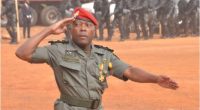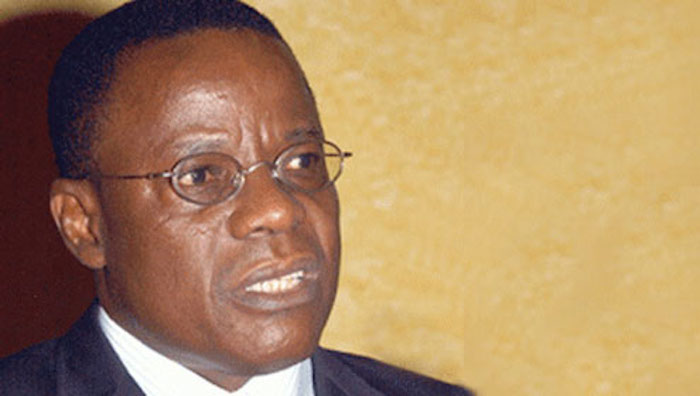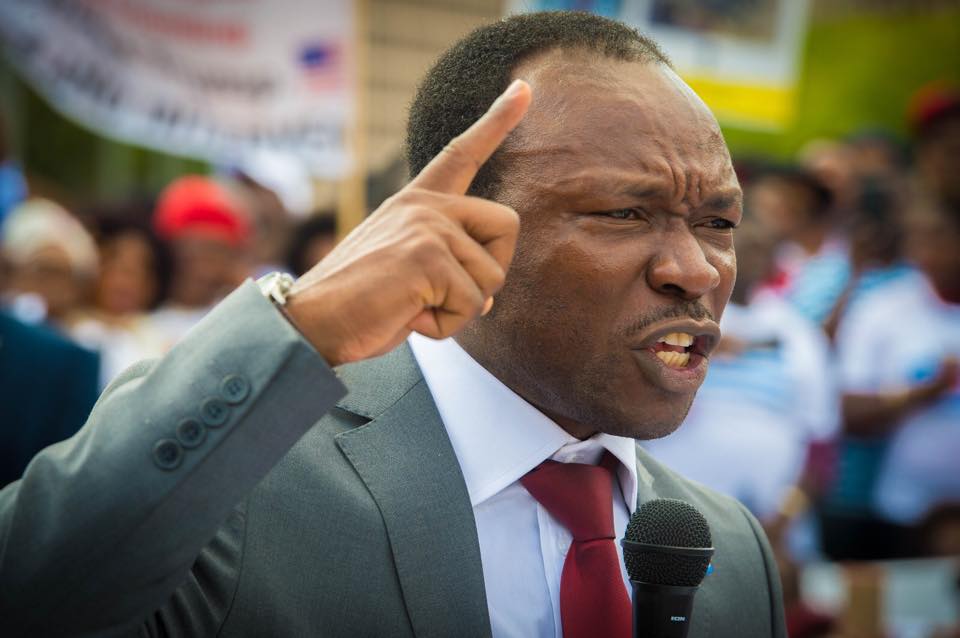Trapped Between Guns and Silence: BBC Exposé Reignites Call for Global Action on Ambazonia War
“Thanks for highlighting the issue. Now pressure must be mounted by the international community to get both parties on the table to end the war and seek justice for the people of the Former British Southern Cameroons.” – Mark Bareta
By Andre Momo, BaretaNews Correspondent
A chilling BBC report titled “Nowhere is safe – Cameroonians trapped between separatists and soldiers” has pierced through the fog of global silence surrounding the Anglophone Crisis in Cameroon. The piece captures the brutality of a conflict that has left thousands dead, displaced over a million, and torn apart the fabric of communities across the former British Southern Cameroons.
The tragic murder of Johnson Mabia, an English-speaking civil servant, by separatist fighters, is emblematic of a wider humanitarian catastrophe. His widow, Ngabi Dora Tue, now mourns with thousands of other families caught in a war they never asked for—a war that has now raged for over seven years.
In response to the article, Mark Bareta, a leading voice in the Ambazonian movement and founder of BaretaNews, expressed gratitude for the BBC’s coverage but stressed that highlighting the issue is not enough:
“Thanks for highlighting the issue. Now pressure must be mounted by the international community to get both parties on the table to end the war and seek justice for the people of the Former British Southern Cameroons.”
The Historical Wounds: From Federation to Assimilation
To understand the present, one must look to the past.
In 1961, British Southern Cameroons voted to join the Republic of Cameroon in what was promised to be a federal arrangement—a union of equals. But by 1972, that federation was dissolved without their consent, and power was fully centralized in Yaoundé. What followed was decades of systemic marginalization, the erosion of the English common law system, and the imposition of French in schools, courts, and governance structures.
The boiling point came in 2016 when Anglophone lawyers and teachers peacefully protested against legal and educational marginalization. The government responded with brute force—arrests, internet blackouts, and military crackdowns. By 2017, amid rising tensions, separatist leaders declared the independent state of Ambazonia, plunging the region into armed conflict.
Mark Bareta: Championing Justice, Warning Against Half-Measures
Mark Bareta, long seen as a central figure in the Ambazonian civil resistance, has consistently advocated for the right of the Anglophone people to determine their political destiny. Known for his strong grassroots support and sharp critiques of both the Cameroonian regime and lukewarm international mediators, Bareta has been instrumental in maintaining the visibility of the crisis.
While Bareta once championed strategies such as “ghost towns” and economic lockdowns to disrupt the status quo, he has since evolved his advocacy toward international diplomacy, provided that any mediation recognizes the legitimate historical and political grievances of Ambazonians.
His recent statement signals urgency—but not desperation. Bareta is not calling for surrender. He is calling for justice through negotiation, and negotiation that honors the truth of the past and secures a just future.
The BBC Report: A Mirror to the War’s Brutality
The BBC article lays bare the agonizing reality for civilians. In regions like Bamenda and Kumba, people are routinely caught between separatist-imposed lockdowns and government security operations. Schools are torched, health workers abducted, and entire towns live in fear. As the BBC rightly puts it, “nowhere is safe.”
Civilians face reprisal attacks from both sides. The Cameroonian military has been accused of arbitrary arrests, torture, and extrajudicial killings. Meanwhile, separatist groups have kidnapped, maimed, and in some cases executed civilians accused of “collaborating” with the state.
And yet, despite this grim reality, the world continues to look away.
The Global Failure: Lip Service, No Substance
International organizations including the United Nations, Human Rights Watch, and Amnesty International have documented war crimes by both separatists and Cameroonian forces. The U.S. Senate and European Parliament have issued resolutions condemning the violence. But beyond statements, tangible action has been virtually nonexistent.
Attempts at negotiation have faltered. The Cameroonian government rejected Canada-led peace talks and remains wary of international mediation, preferring top-down “national dialogue” efforts that exclude key stakeholders. The Swiss-led initiative has been stagnant, with separatist factions expressing deep distrust of the process.
Mark Bareta and other leaders have warned repeatedly that negotiations without justice—without addressing the root causes of the conflict—are nothing more than political theatre.
A Crisis Crying for Leadership
It is time for international actors to go beyond diplomacy by press release. The United Kingdom, as the former administering power of British Southern Cameroons, bears a historical responsibility. The African Union and ECOWAS must rise above neutrality and commit to conflict resolution that respects the principle of self-determination enshrined in the UN Charter.
Concrete steps must include:
-
An immediate ceasefire and establishment of humanitarian corridors.
-
An independent international investigation into war crimes.
-
A credible, inclusive negotiation framework, with international guarantors.
-
Political recognition of the distinct identity and rights of the people of former British Southern Cameroons.
Final Thoughts: The Moral Case for Action
The BBC has spotlighted the suffering. Mark Bareta has laid out the roadmap: pressure, justice, dialogue. The choice now lies with world leaders.
Will they continue to allow geopolitics and diplomatic caution to outweigh human suffering?
Or will they finally act to stop a war that history will one day judge them for ignoring?
BaretaNews joins in urging the international community to act now—not for the sake of political convenience, but in the name of humanity, justice, and peace.





